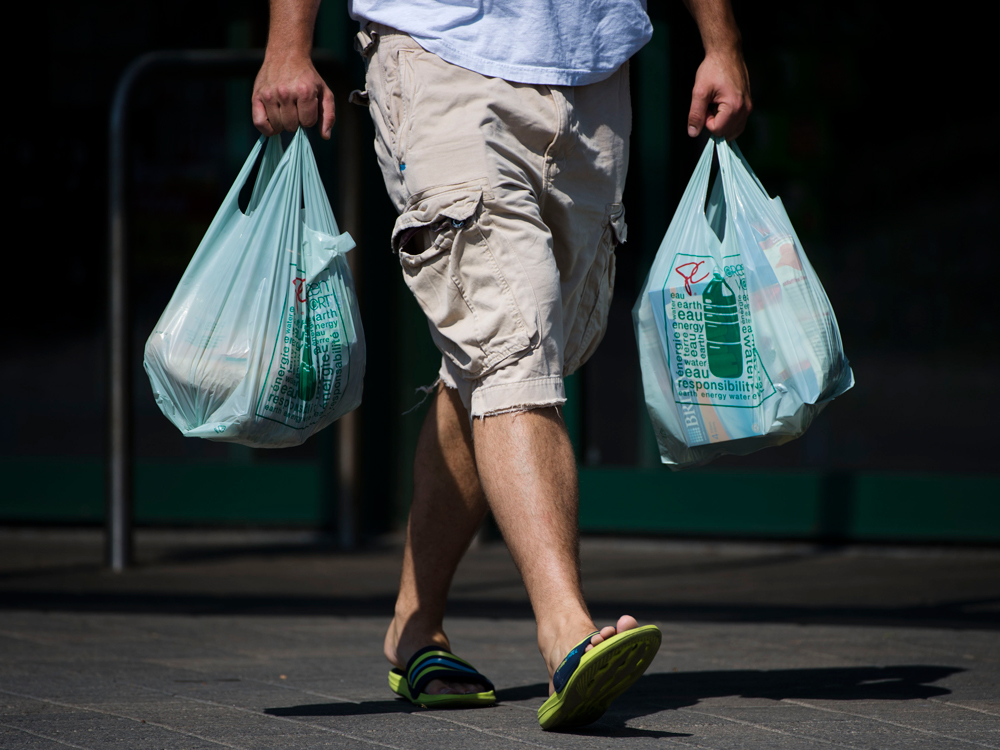OUR earth is dying and we need to do something. Climate change is happening right now – we all want to help, by just simply biking instead of driving, conserving water, and taking your own reusable cotton tote bag to the grocery store. But not all changes are as beneficial as they seem.
In a 2018 life-cycle assessment, Denmark Ministry of Environment and Food agreed with a lot of studies, finding that plastic bags have the least environmental impact. When taking into account the impact of manufacturing, – on climate change, ozone depletion, water use, air pollution, and human toxicity. This may sound shocking but plastic shopping bags are actually the most kind of the current common options. The plastics that normal shoppers get at the grocery store, are low-density polyethylene (LDPE) bags.
The table below, using data from the Denmark study, compares the environmental performance of LDPE bags to other bags, assuming that the LDPE bags are reused once as a trash bin before being thrown.
| Bag type | Reuses necessary to have same climate change impacts as a classic plastic bag | Reuses necessary to have same cumulative environmental impact (water use, energy use, etc.) as a classic plastic bag |
| Classic plastic (LDPE), reused once as waste bag | 0 | 1 |
| Classic plastic (LDPE) with a rigid handle, reused once as waste bag
|
0 | 0 |
| Recycled plastic | 1 | 2 |
| Non-woven polypropylene | 6 | 52 |
| Woven polypropylene | 5 | 45 |
| Recycled polyethylene terephthalate (PET) | 8 | 84 |
| Polyester (like Baggu) | 2 | 35 |
| Unbleached paper | 1 | 43 |
| Bleached paper | 0 | 43 |
| Organic cotton | 149 | 20,000 |
| Conventional cotton | 52 | 7,100 |

Cotton bags must be reused 7,100 times before they meet the environmental performance of plastic bags – and, the Denmark researchers stated, organic cotton is worse than conventional cotton when it comes to overall environmental impact. According to the report, organic cotton bags have to be reused many more times than conventional cotton bags (20,000 versus 7,100 times).
This is really horrifying. Imagine using a tote bag 7,100 times just to make up for the impact of it being made. With plastic bag bans soaring in popularity globally (127 countries have adopted plastic bag restrictions), the question of what will replace plastic bags has become more hard. We know that single-use of anything is a terrible idea, so replacing plastic bags with paper ones will surely have harmful side-effects like increasing deforestation. Making a paper bag also requires more energy and water than making a plastic bag, so for other environmental considerations besides litter, paper products may be worse than plastic ones.
So, what should you do if you want to limit your environmental footprint? Well using reusable plastic bags – whether made of recycled plastic, or nylon – is best. You can use them a hundred of times, they may show wear and tear but until it can be used — use it! Any grocery bag of your choice can be re-used even if it’s a single-use plastic bag, you can line your trash can with it. As many times as possible, use it to carry your lunch, or carry it with you next time you go grocery shopping.
As for you, who hoards a lot of tote bags – keep using those as much as you can. And please don’t buy new ones anymore, and just say no next time you’re offered a free one./PN




